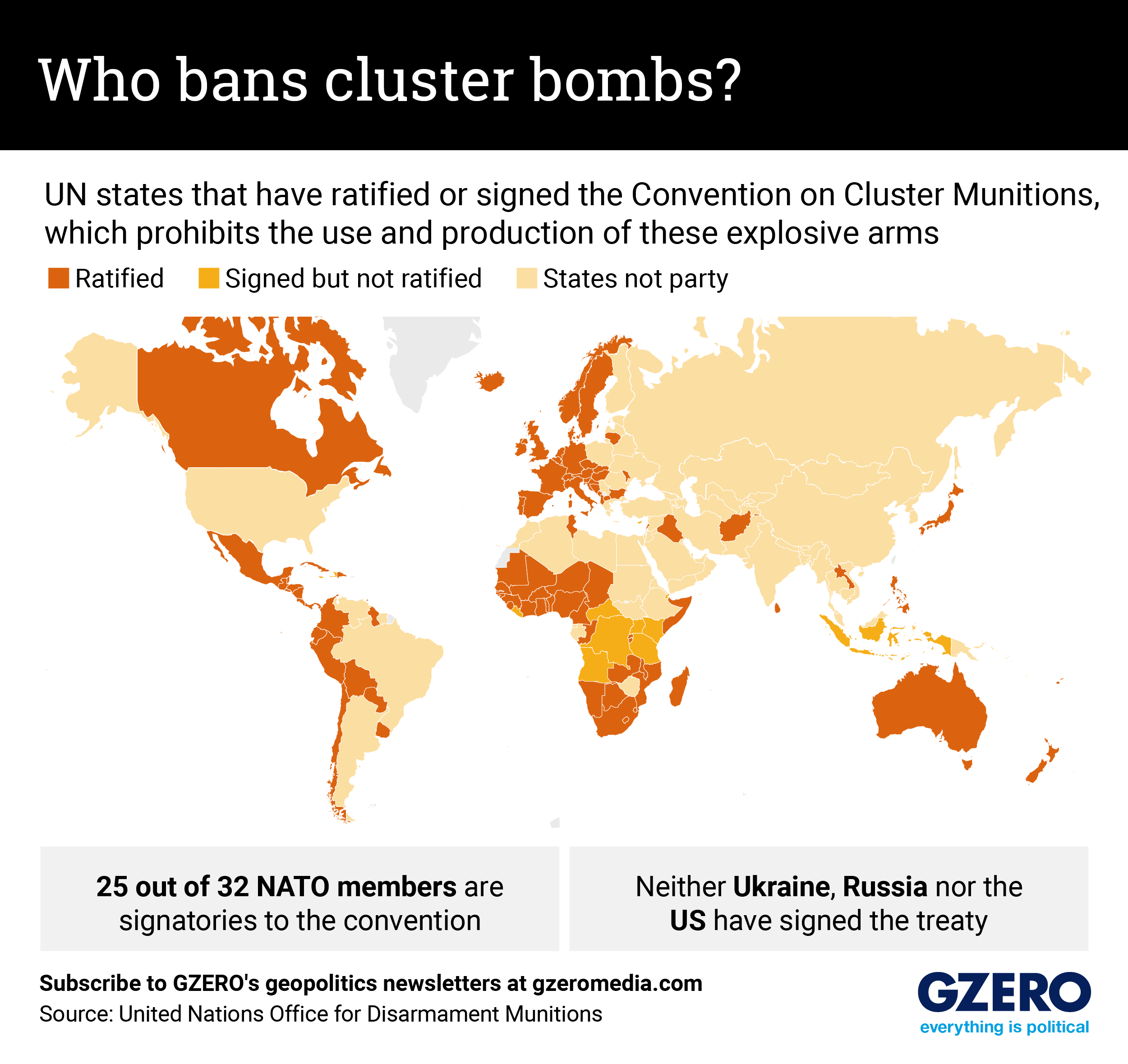July 11, 2023
The Biden administration recently made waves after agreeing to provide Ukraine with cluster munitions. That put the US at odds with key allies, like the UK, that disapprove of the move.
But what are cluster bombs, and why are they so contentious?
The explosives are versatile: They can be dropped from the air or fired from the ground or sea. Crucially, they might contain hundreds of smaller weapons — known as bomblets — that can be activated mid-air or on the ground. The combined fuze of these submunitions can cover an area the size of several football fields.
Cluster bombs are particularly contentious because some submunitions fail to explode. When they land on the ground, they become like landmines that are extremely dangerous for civilians — particularly children who might pick them up.
Because of the breadth and unpredictability of these weapons, since 2008 more than 100 countries have signed the UN Convention on Cluster Munitions, which bans the use, stockpiling, and production of these arms. Still, neither the US, Russia, nor Ukraine are signatories to the treaty, and the weapons have already been used by both sides during the ongoing war.
We take a look at which countries have ratified the treaty (they are legally bound by it), only signed on (showed an intention to comply with its terms), and those that have rejected it altogether.
More For You
- YouTube
New international org just dropped #PUPPETREGIME
Most Popular
Think you know what's going on around the world? Here's your chance to prove it.
In 1930, an American sociologist arrived in the capital of Liberia, a small country in West Africa, on an unusual assignment. Charles S. Johnson, trained at the University of Chicago, had never conducted research outside the United States before.
© 2025 GZERO Media. All Rights Reserved | A Eurasia Group media company.
